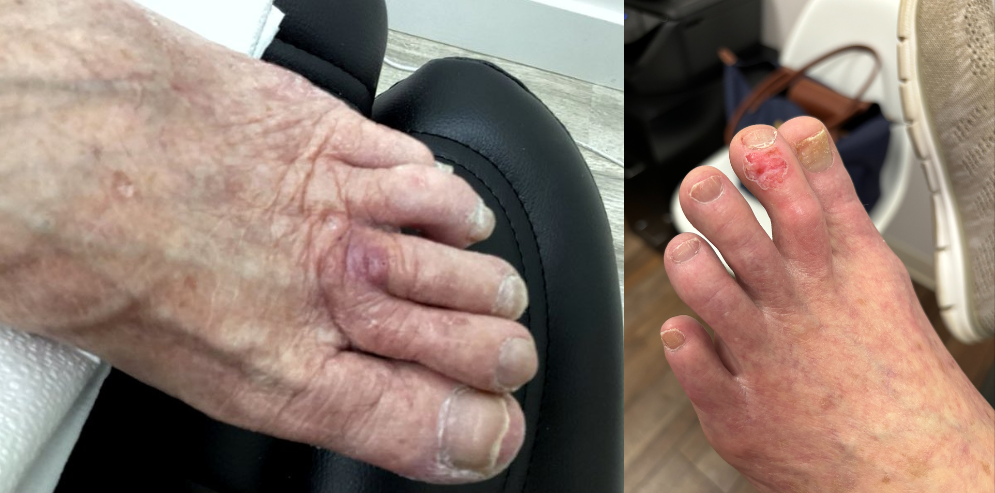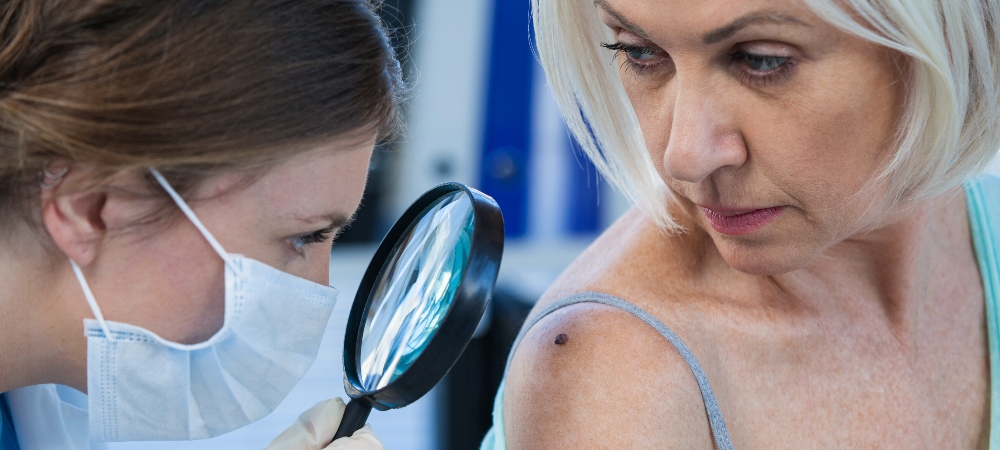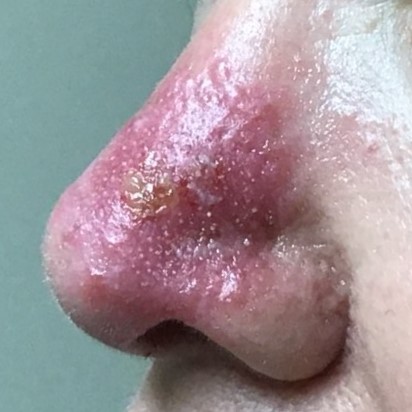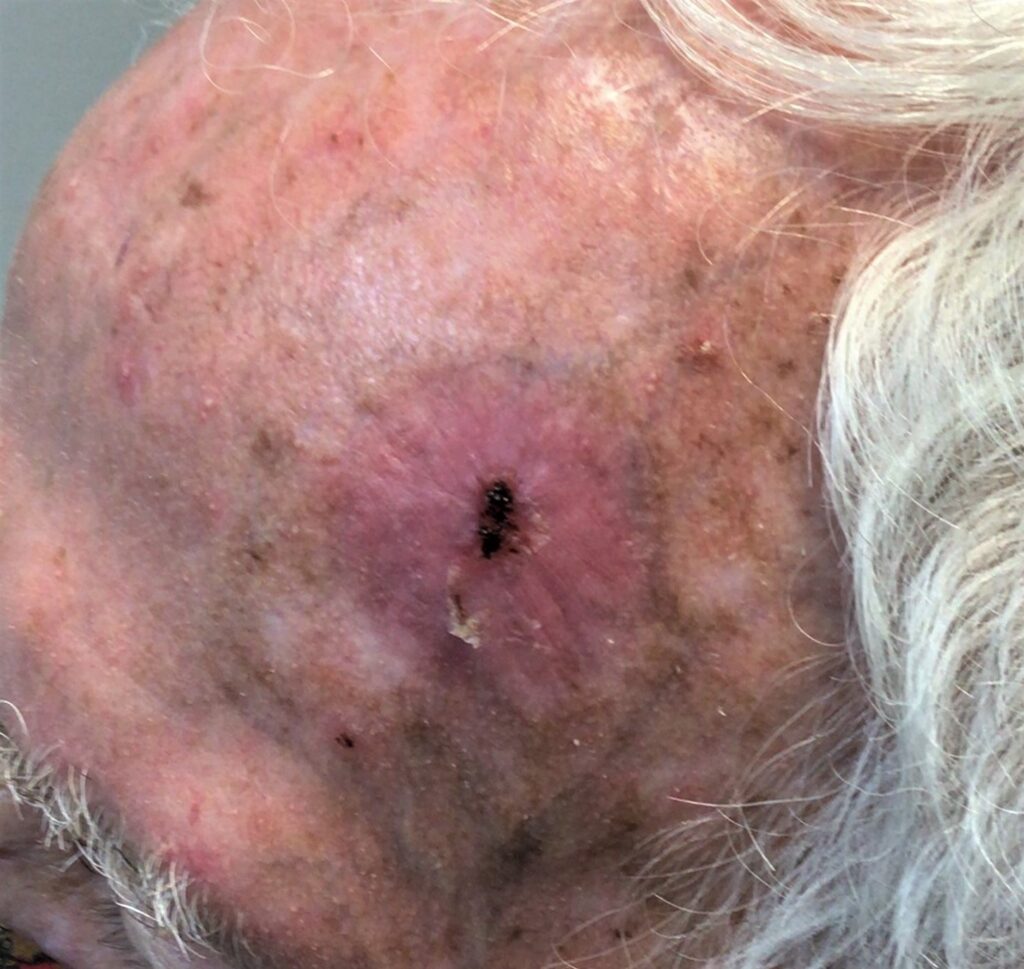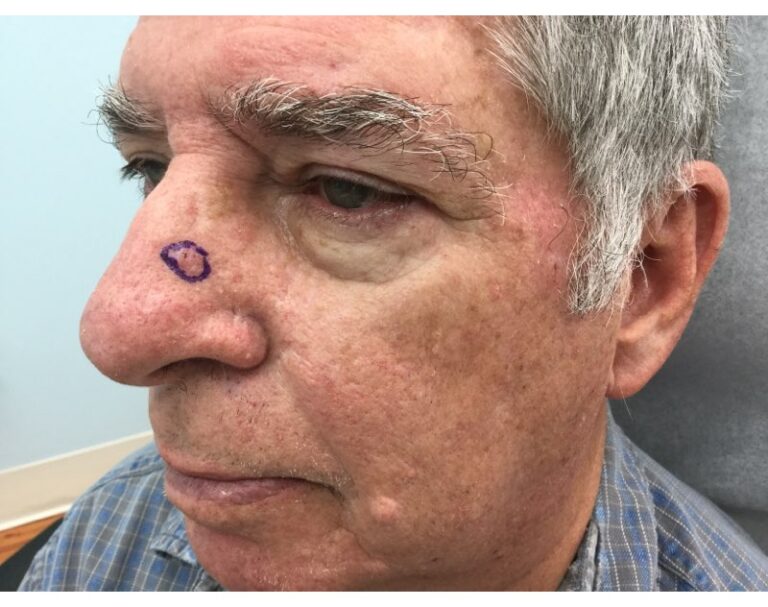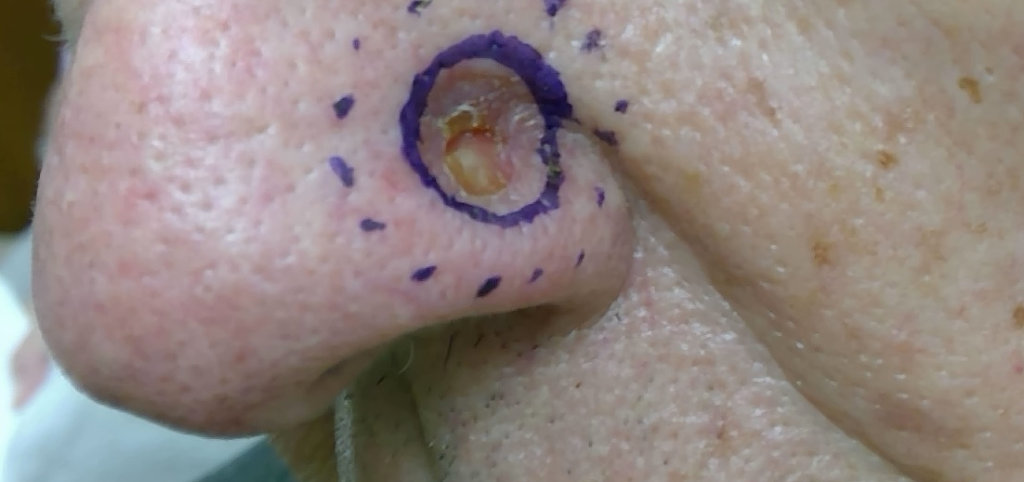
First, let’s answer the question, “What is basal cell skin cancer?” Basal cell skin cancer is the most common form of skin cancer. It also occurs more frequently than any other type of cancer. In fact, around 3.6 million cases are diagnosed each year in the United States alone. Basal cell skin cancer is caused by the rapid, irregular growth of basal cells, which are small, round cells found in the outer layer of the skin. Basal cell skin cancer is slow-growing, and fortunately, most cases are curable if caught in time.
So, what is the most common cause of basal cell skin cancer? The American Cancer Society has a clear answer to that question. Most cases of basal cell skin cancer (as well as squamous cell skin cancer) are caused by repeated exposure to ultraviolet (UV) rays from the sun or tanning beds. UV radiation (including UVA, UVB, and UVC) is carcinogenic to humans. UV rays damage the DNA inside skin cells. Oncogenes and tumor suppressor genes control the lifecycle of cells, and when they’re damaged (by UV rays, for example), cells may not grow, divide, and die normally. Instead, they grow out of control, resulting in cancers like basal cell skin cancer.
Mutated PTCH1 or PTCH2 tumor suppressor genes are often seen in cases of basal cell skin cancer. PTCH1 and PTCH2 genes are involved in the development of organs, tissues, cell growth, and cell division. They’re part of the cell signaling pathway. Inside cells, groups of molecules work together to control cell function (or the cell-division cycle) through a series of chemical reactions.
The PTCH1 gene produces the patched-1 protein, which is a receptor in the cell signaling pathway. Patched-1 has a ligand known as the Sonic Hedgehog protein, and they function in a cell pathway that’s important in early development. Ligands and receptors work together to create signals that trigger cell development and division. The patched- 1 and Sonic Hedgehog pathway contribute to cell growth, specialization, and the shaping of different areas of the body. Abnormal activation of cell signaling pathways, such as the patched-1 and Sonic Hedgehog pathway, can lead to diseases, such as cancer.
When the PTCH1 and PTCH2 genes are functioning normally, they promote normal cell growth. On the other hand, rapid and uncontrolled cell growth can occur when they’re damaged or changed through an inherited condition or during a person’s lifetime. This can lead to the development of abnormal cells, such as cancer cells. While most cases of basal cell skin cancer are caused by too much exposure to UV radiation, in rare cases, an altered PTCH1 can also be inherited from a parent with Gorlin syndrome (basal cell nevus syndrome), which creates a predisposition to developing basal cell skin cancer sometimes as early as adolescence.
How Serious is Basal Cell Skin Cancer?
You might be wondering, “Should I worry if I or my loved one has basal cell skin cancer?” Anyone who has received a cancer diagnosis of any kind is bound to worry, and their loved ones will worry for them. There’s no avoiding concern for a loved one or concern for one’s own well-being. Cancer is always serious, but the good news is basal cell skin cancer is rarely fatal when it’s caught and treated early.
If left untreated, basal cell skin cancer can grow deeper under the skin, causing damage to surrounding tissues as it spreads. Untreated basal cell skin cancer can also grow into the bones and brain, which can be fatal. This is why it’s important to visit your dermatologist regularly and get skin cancer screenings when they’re due.
Learn More About Skin Cancer Treatment Options with GentleCure™
If you’ve been diagnosed with basal cell skin cancer, there are several treatment options available to you. GentleCure is committed to connecting people with common skin cancers to practices that offer Image-Guided Superficial Radiotherapy — a surgery-free alternative to Mohs that won’t impact your ability to do the things you love. Find an IG-SRT location near you, or contact us online or by phone for more information.
